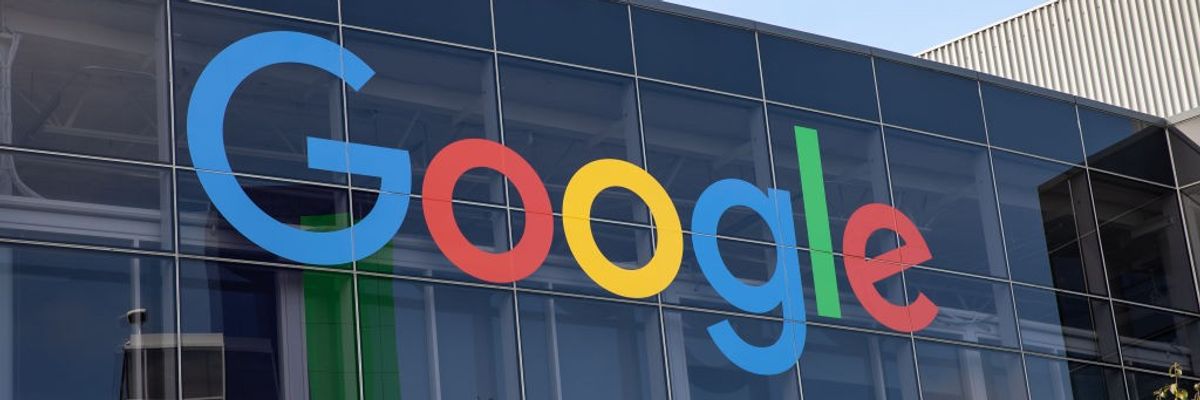Google announced on Monday that it had signed a deal to purchase energy from a set of yet-to-be-built small nuclear energy plants in order to power artificial intelligence.
Google signed a power-purchase agreement with Kairos Power, a California-based startup that will build four small modular reactors (SMRs) by 2035 for the Big Tech company's exclusive use.
AI data centers use astonishingly high levels of electricity, and Big Tech firms, which have made net-zero pledges, have recently been turning to nuclear power as a potentially carbon-free power source.
Though it doesn't emit greenhouse gases during operation, nuclear power comes with high risks and produces long-lasting radioactive waste; scientists and experts are divided on the wisdom of its use, and many environmental and justice-oriented groups are adamantly opposed.
Reinhard Uhrig, a climate and energy expert at WWF Austria, decried the new deal, arguing that renewable energies such as wind and solar are the best way to reduce emissions.
"This is BS, Google," Uhrig wrote on social media, citing an "unproven design."
The Google-Kairos deal calls for one 50-megawatt reactor to be online by 2030 and three more 75-megawatt reactors to be operational by 2035. That's far less than a typical conventional nuclear reactor, which produces about 1,000 megawatts of power.
The United States currently gets about 19% of its electricity from nuclear power. Tax credits included in the Inflation Reduction Act have spurred growth in the sector, with Big Tech showing a particular avarice for nuclear energy.
Last month, a deal was announced to reopen Three Mile Island to power Microsoft's AI data centers. Three Mile Island, which sits on the Susquehanna River in Pennsylvania, was the site of the worst nuclear disaster in U.S. history when a reactor partially melted down in 1979, for which final cleanup efforts are still ongoing. The plant shuttered in 2019 but, pending regulatory approvals, is scheduled to restart operations in 2028.
Renowned political activist Jane Fonda responded to news of the Three Mile Island reopening by declaring, in an op-ed in The Philadelphia Inquirer, that her "heart sank" and that nuclear is "not a good climate solution."
Google's nuclear play is more experimental than Microsoft's. There are only three operational SMRs in the world—the first opened in China in 2021—and none in North America. SMRs use molten fluoride salt as a coolant, rather than water.
Google and Kairos didn't release any financial details about the deal and the sites for the SMRs haven't been chosen yet. Kairos formed in 2016 with the backing of the U.S. Department of Energy. Google says the SMRs will provide "clean, round-the-clock" energy.
Google, which is owned by Alphabet, lost a major antitrust case in August and faces further federal scrutiny for acting as a monopoly.
